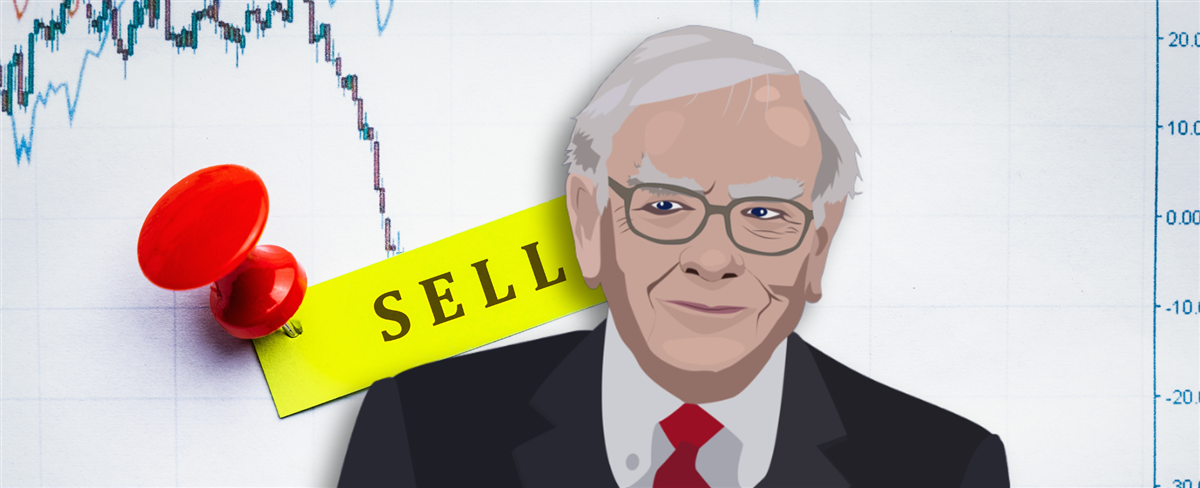When Wall Street’s biggest minds decide to make significant moves in their portfolios, retail investors better take notice and try to reverse engineer the thinking and reasoning behind those moves. Today, investors can review the recent 13-F filings from the Oracle of Omaha himself, Warren Buffett.
Buffett’s view of markets takes a long-term view. However, it has no problem reducing its exposure to markets when and if valuations no longer make sense for its strategy. This situation arose in 1999 when Buffett mentioned in an interview with CNN that he had invested money and sold some shares in anticipation of a lost decade for the S&P 500.
The same factors he spoke about then are present today, and to an even greater extent.so investors can expect him to sell shares Apple Inc. NASDAQ:AAPL as a symptom of these views of the market as a whole. However, Buffett sold shares other companies with similar trends. It seems to be leaving the consumer sector altogether for the following reasons.
Markets may not repeat themselves, but they often rhyme: Key lessons for investors
Back in 1999, some numbers were so out of whack that Buffett was considering selling the stock. Those same numbers are back, if not worse, at the levels that put Oracle out of the game for a while. Let’s start with corporate earnings as a percentage of U.S. gross domestic product (GDP). This is what it looked like then.
6.5% of GDP was enough above the long-term average of 4% for Buffett to view the stock market as a whole as expensive. This could then be simplified to the famous “Buffett indicator”, which measures the stock market level to GDP as a ratio.
Today, corporate returns look like 11.5%, much more expensive than they were back then. Consequently, the Buffett indicator is now at an all-time high, making the levels from that time seem like a shadow of today’s market. For this reason, Buffett may initially be looking to get rid of some of the cyclical stocks in the market before it’s too late.
However, investors need to understand why higher corporate earnings and higher stock market to GDP ratios will cause problems in today’s economy. When Buffett issued his warning about a lost decade, inflation was at the higher end of the spectrum, as were bond yields.
This means that on a real (rather than nominal) basis, earnings per share (EPS) would need to rise above inflation and bond yields today to justify today’s S&P 500 valuations. According to Goldman Sachs analysts, the S&P 500 index will not be able to deliver annual returns higher 3% over the next decade.
Wall Street is echoing this theme and betting that from today’s extended levels, earnings per share will not be able to outpace inflation and bond yields by a large enough margin to support lower single-digit profit margins.
What Buffett Sold Recently in the Cyclical Sector and Why It Matters
In addition to selling Apple for two straight quarters, Buffett has decided to target some other companies whose discretionary spending is driven by the consumer cycle. Floor & Decor Holdings Inc. New York Stock Exchange: FND also made the sales list, a name that Charlie Munger, Buffett’s former partner, compared to Costco Wholesale Company. NASDAQ: VALUE.
While expanding into the consumer financial sector, Buffett also decided to reduce his exposure to stocks Financial company Capital One. New York Stock Exchange: COFrecognizing that consumer lending may be one of the first market niches to feel the pain of slowing consumption growth.
But Buffett didn’t stop with credit cards and simple credit trends. He also reduced his stake in Bank of America Co. New York Stock Exchange: BAK. When investors consider the payment hierarchy, the move makes sense as discretionary products come in at the top, followed by credit cards and finally products like auto loans and mortgages.
With the 10-year yield now up to 4.3% and inflation back at 2.6%, it appears that the future outlook for the S&P 500 and these stocks won’t be enough to justify Buffett staying afloat .
While this doesn’t mean every investor should buy and sell like Buffett does, it does require a second look at the market and individual assets around this new theme.
Before you make your next trade, you’ll want to hear this.
MarketBeat tracks Wall Street’s top-rated and best-performing analysts daily and the stocks they recommend to their clients.
Our team has identified five stocks that top analysts are quietly whispering to their clients to buy now, before the broader market catches on… and none of the big name stocks made the list.
They believe these five stocks are the five best companies investors can buy now…
See the five stocks here
Click the link below and we’ll send you MarketBeat’s list of the 10 best stocks to own in 2025 and explain why they should be in your portfolio.
Get this free report
